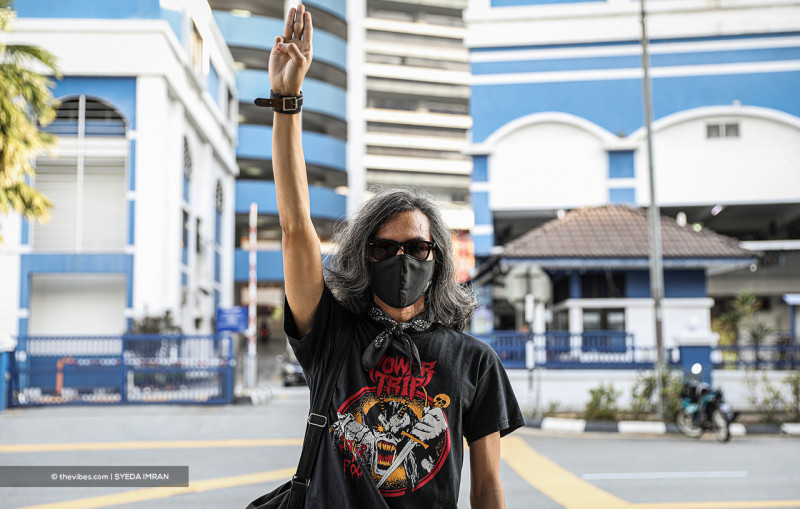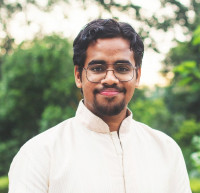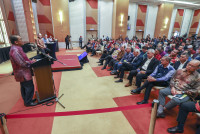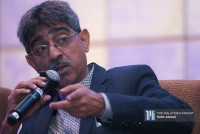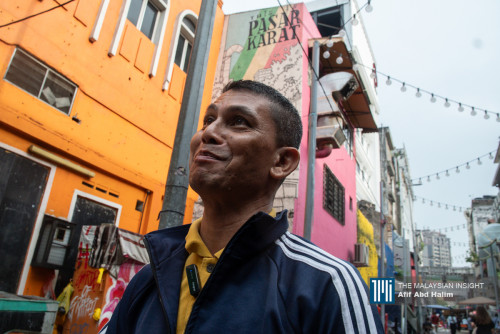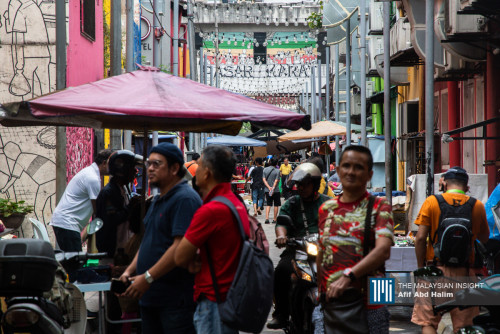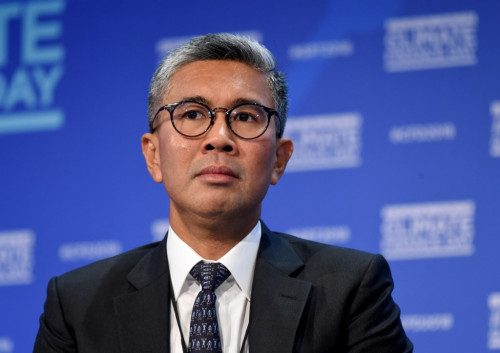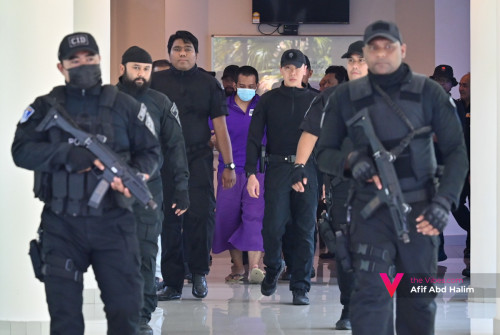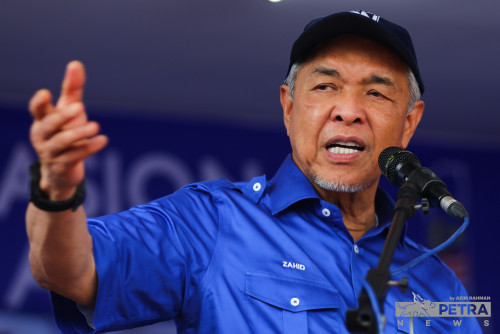“OUR country is in shambles. We have a punk anarchist talking about democracy,” declared a speaker at one of Fahmi Reza’s ‘Kelas Demokrasi’ sessions, dipping into laughter.
Fahmi, of course, requires no introduction. The renegade graphic artist, always clad in black clothing and a beret, has been a social activist most of his adult life. He gained national notoriety and the international spotlight for his clown caricatures of former prime minister Najib Razak.
“We are currently living in a time where our politics is a farce, filled with hypocrisy and absurdity. Our country is being governed by fools and crooks,” he was quoted as saying in a 2015 interview.
No one is spared from Fahmi’s pen.
He has produced illustrations of Mahathir Mohammad gesturing the middle finger, Sarawak’s former chief minister Taib Mahmud with the word ‘koruptor’ plastered over and even caricatures of Malaysian royalty.
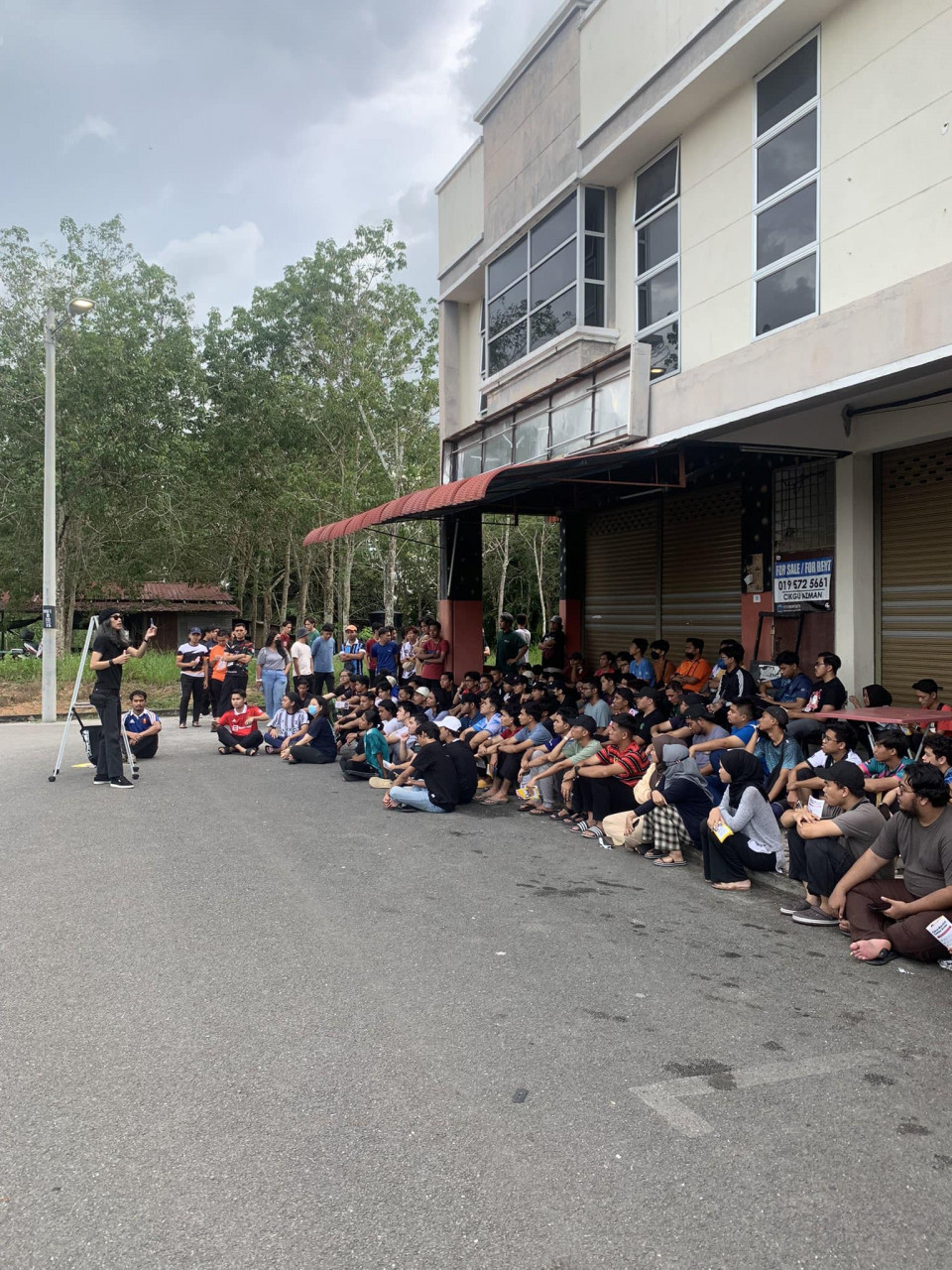
Regardless of your own beliefs, his work draws forth an uncomfortable truth, and transgresses the dictum of “budi bahasa budaya kita” that is often weaponised by political leaders to command subservience from the citizenry.
For his work, he was called for questioning by the police 12 times and was placed under arrest three times in just the span of last year. Fahmi though, wears these as a badge of honour, proof of his commitment to the social activism he has dedicated his life to.
His renegade quality and firebrand attitude, rarely seen in Malaysian public life, has propelled him into rockstar-like stature among millennials and Generation Z.
Ahead of the 15th General Election, he has been conducting “crash course” lectures on Malaysian politics for first-time voters. What started as TikTok videos and live online sessions has morphed into a one-man cross-country roadshow.
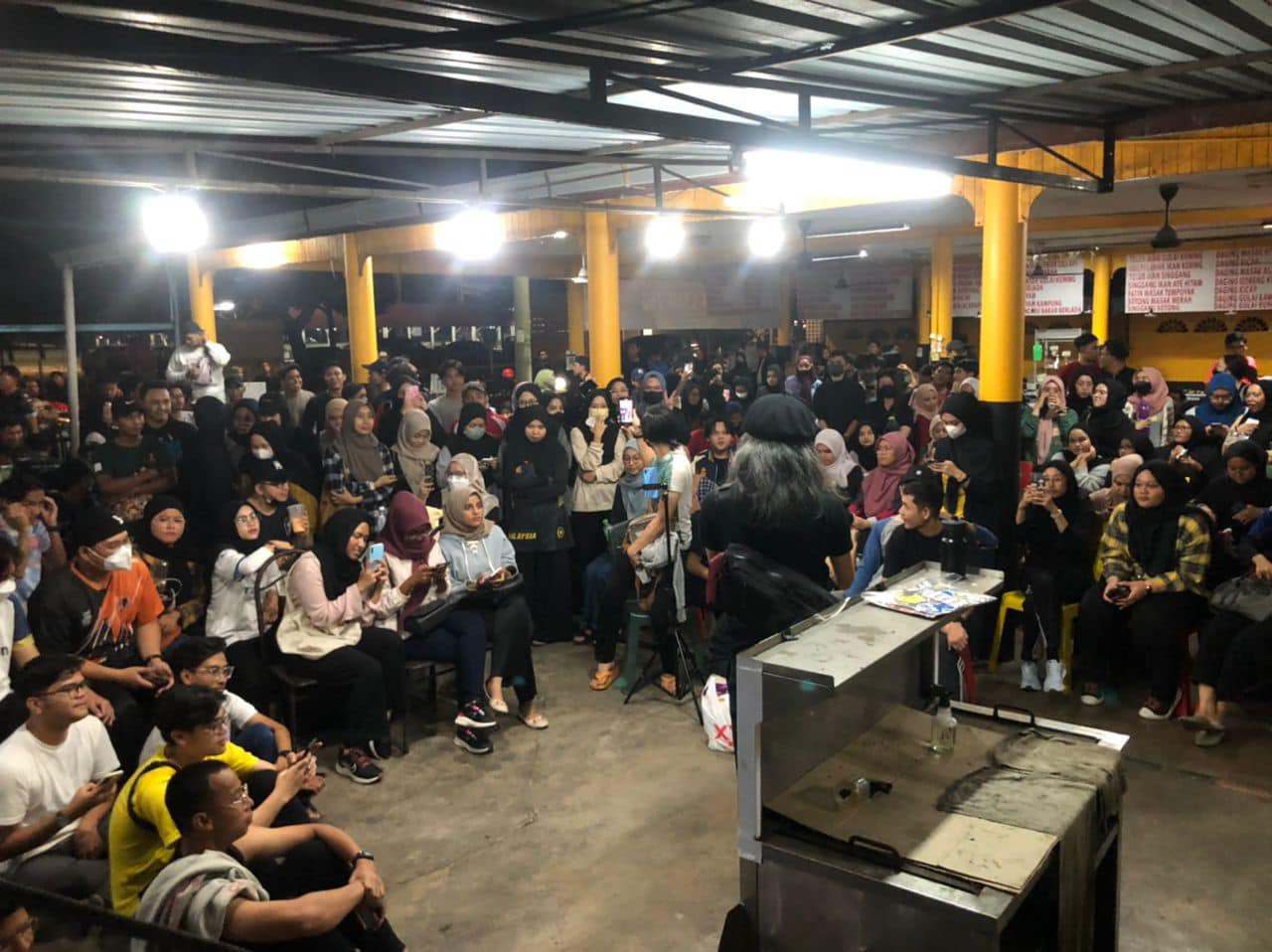
Armed with just a whiteboard and bright, colourful hand-made stickers, he breaks down complex ideas like Malaysia’s parliamentary system, the political spectrum of Malaysia’s different parties, gerrymandering and delimitation of constituencies in layperson terms.
His online videos have collectively amassed millions of views. Bringing these lectures to university grounds, however, has proven contentious.
To date, he has been barred from eight public universities, University Malaya (UM) and University Science Malaysia (USM) among them.
Despite presenting these lectures from a completely non-partisan point-of-view, it has triggered a concerted effort by university administrators to block and prevent them from taking place.
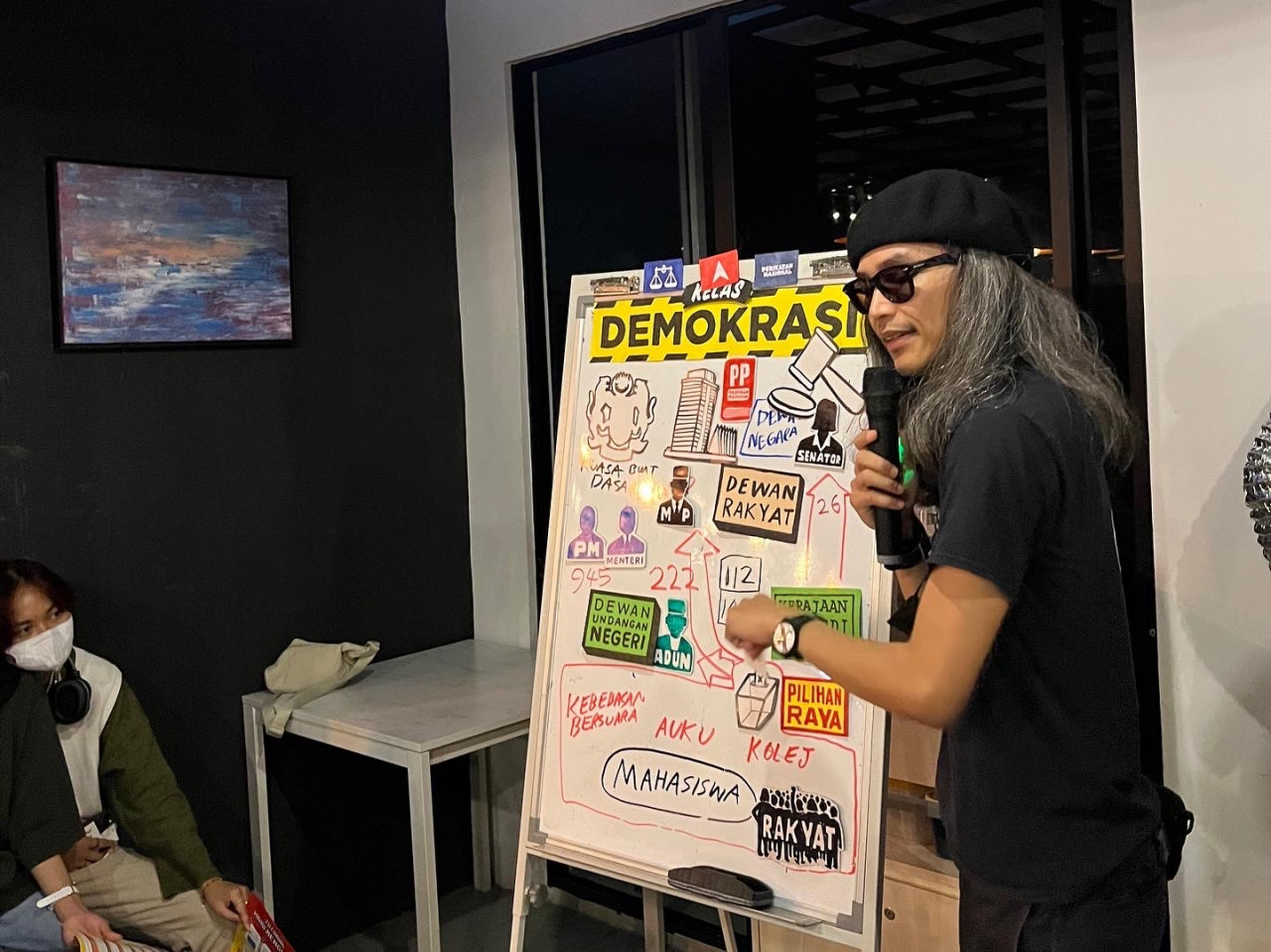
Police officers were often dispatched to break up the congregation gathered around Fahmi, which usually numbers anywhere between 150 to 300 people. Undeterred, Fahmi would politely comply, and hitch his whiteboard in a food stall or by the road.
In Kelantan, an anonymous citizen offered the use of their 500-capacity hall for free. To understand exactly what makes his democracy classes a radical act, you would have to rewind the clock 50 years when youth activism was burgeoning.
Not long after the events of May 13, 1969, student movements began to be viewed as a threat by the authorities for their participation in political demonstrations.
The Universities and University Colleges Act 1971, commonly referred to as AUKU, was introduced in 1971 to suppress student movements and participation in politics.
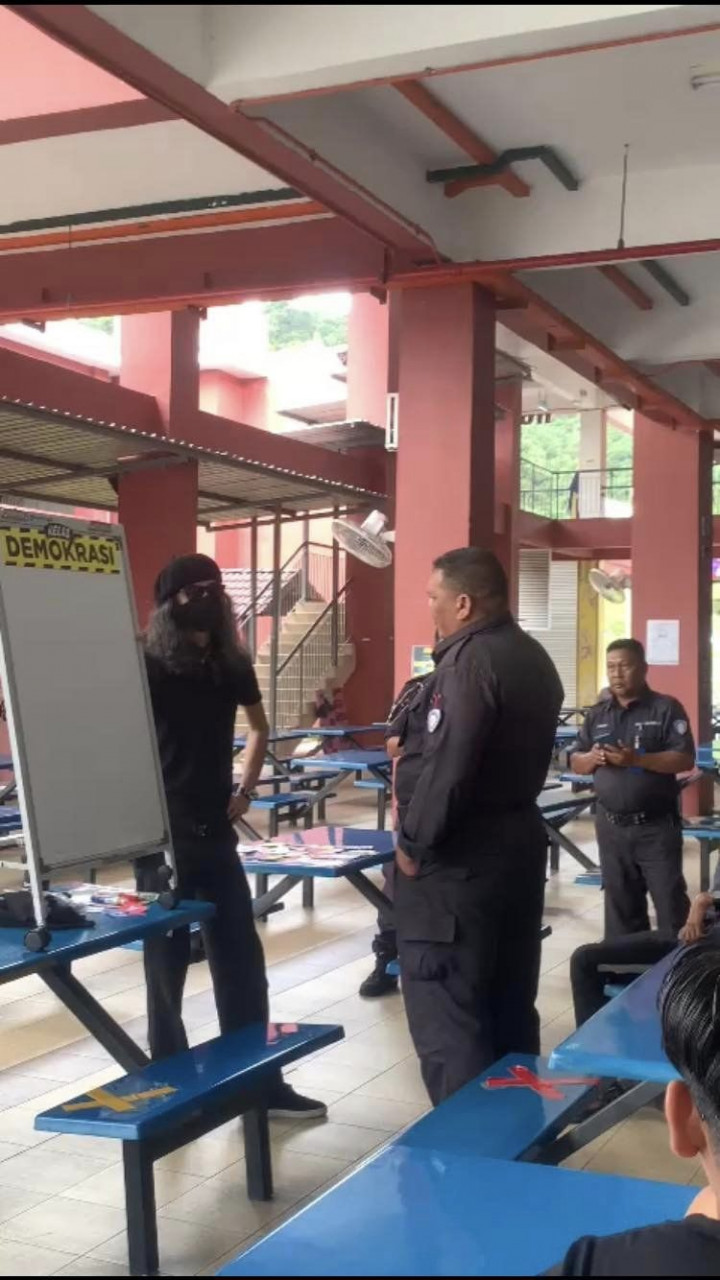
The bill's introduction was met with great resistance from student bodies and opposition political parties, but it came into effect regardless. Campus environments changed dramatically to stay in line with the government’s political attitudes.
Students were prohibited from associating with political parties or unions. In 2019, under the Pakatan Harapan government, AUKU was amended to allow university students to take part in political activities on campus.
However, the decades-long campaign to stifle student voice in the national arena has proved successful. That Fahmi’s classes have become so popular is an indictment of the failure of our education system to inculcate a civic-conscious and politically literate youth.
Khairil Yusof, founder and director of Sinar Project remarked that “a culture of self-censorship around political discourse has been suppressed under the wide and vague umbrella of "sensitive" topics, and fear that questioning authority will lead to instability and riots.
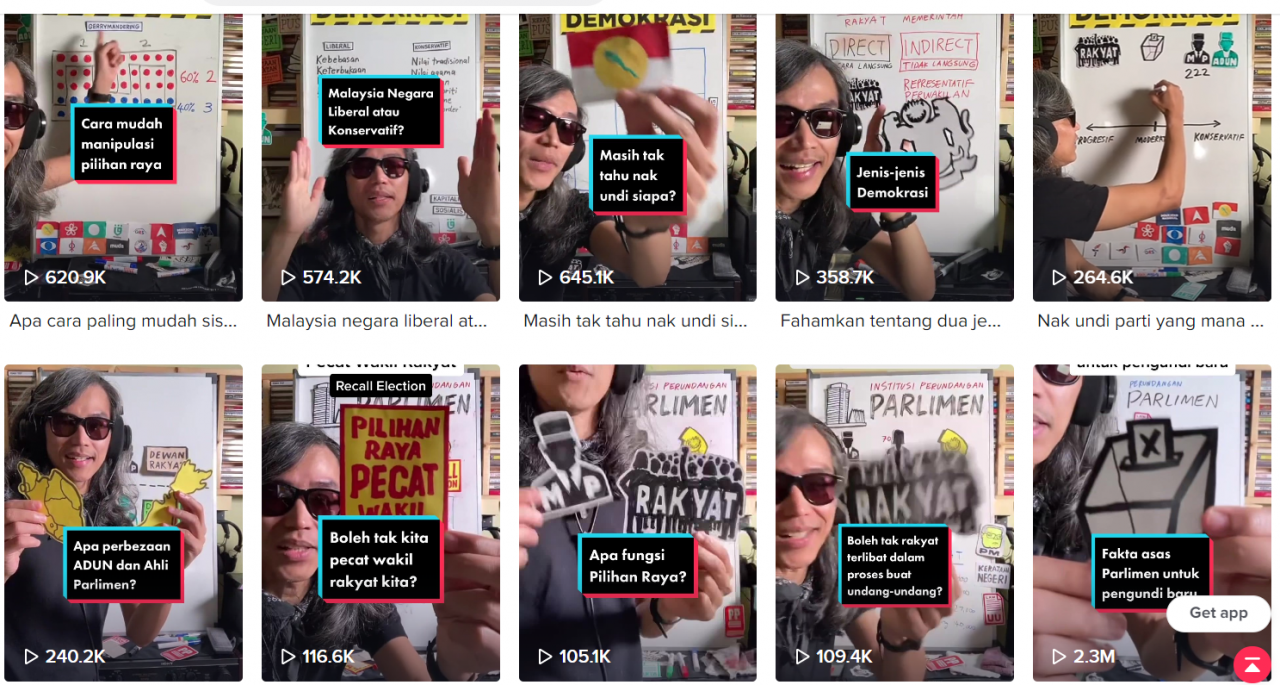
The danger this poses is that it allows the ruling party to drive the discourse without intellectual debate, and entrenches power while reducing accountability, by not allowing any alternative political viewpoints to be discussed or policies questioned.”
“As Fahmi Reza tour of university campuses show, Malaysian public universities also need academic independence. Universities around the world allow speakers from different political parties and political viewpoints to talk to students.
"Researchers are free to write and undertake policy research and publish their findings freely, whether or not it might shed a negative light on government policy,” Khairil added.
Iqa, an observer, said that “Fahmi’s Kelas Demokrasi run is a crucial independent effort that reminds me a lot of his Student Power lectures which reignited student activism in public universities like no other.
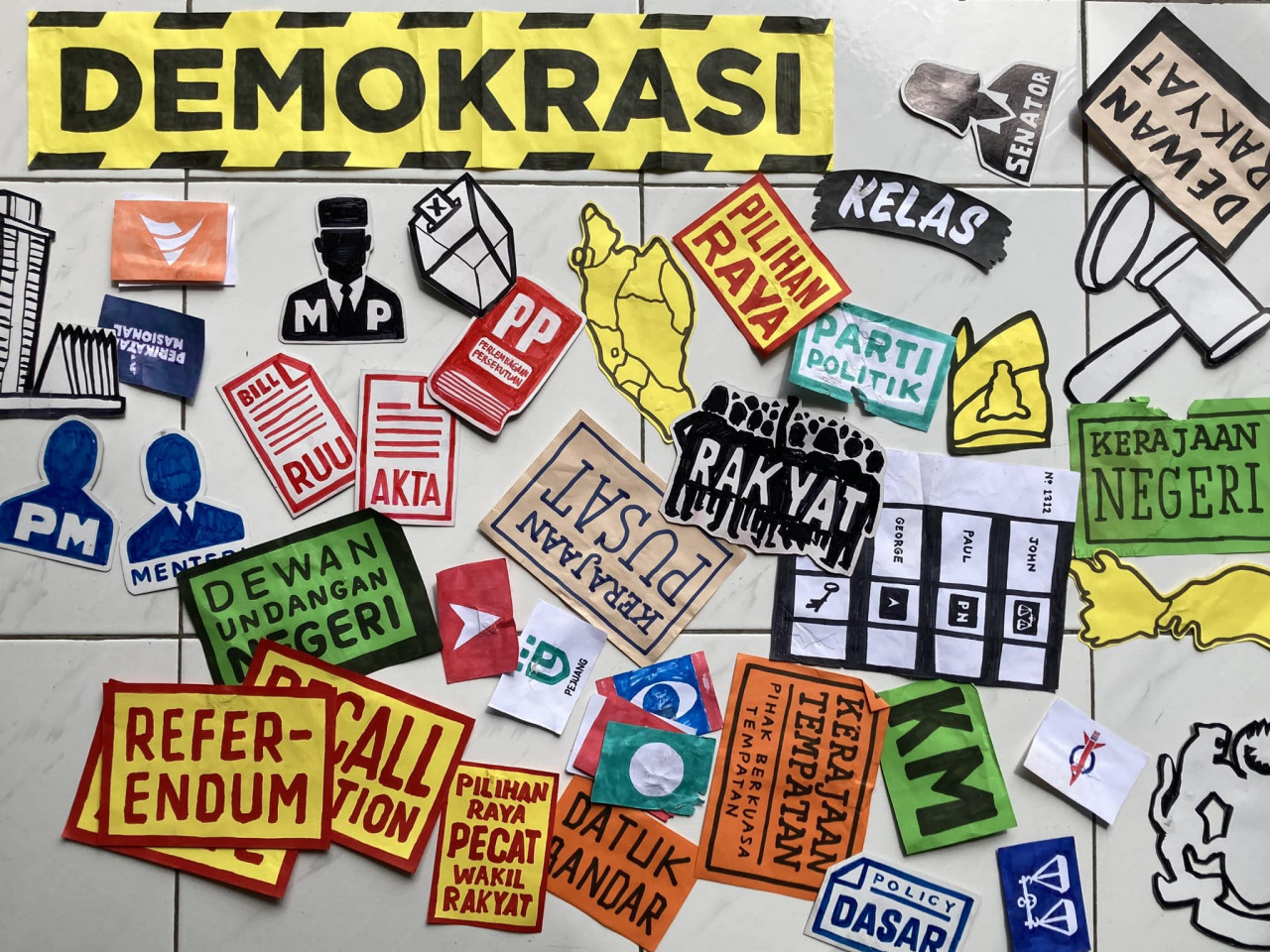
"AUKU still had a stranglehold on campus politics then and there was an understanding in the air that we were all there because we dared to dream for more.
"I was 19 years old when I attended it – a first-year law student who was more ignorant than informed. That encounter changed my life.” – The Vibes, November 18, 2022



